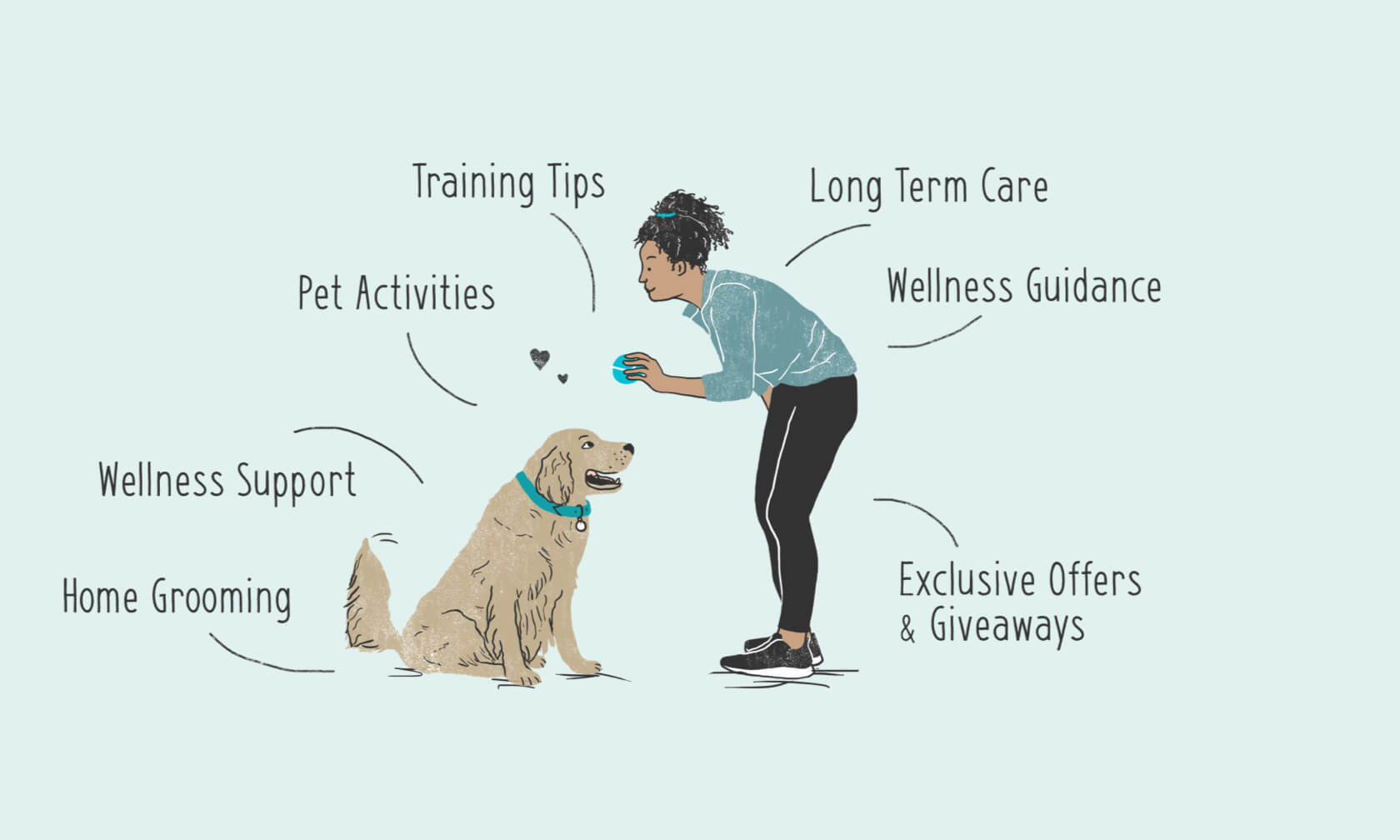Understanding Your Pet Dogs' Nutritional Needs for Optimum Wellbeing

Significance of Balanced Diets
Making certain a balanced diet plan for pet dogs is essential for their overall health and health. A correct diet not only sustains life yet additionally boosts the quality of life by giving essential nutrients that sustain different bodily features. Animals, like humans, require a blend of proteins, carbohydrates, fats, minerals, and vitamins to maintain optimal wellness. Each nutrient plays a distinctive function; healthy proteins are essential for tissue repair and growth, fats provide energy and assistance cell function, while carbs work as a main energy resource.
Incorporating a variety of nutrients makes sure that animals preserve a durable body immune system, healthy skin, and a shiny layer. Moreover, a well balanced diet can prevent a host of health issues such as weight problems, which is connected to diabetes and joint issues, or malnutrition, which can result in developmental delays and body organ dysfunction.
Family pet owners should be conscious of part sizes and caloric intake, as overfeeding or underfeeding can have significant consequences. Consulting with veterinarians or pet dog nutritionists can help tailor diet plans to satisfy specific requirements, ensuring that pet dogs obtain the ideal equilibrium of nutrients necessary for their age, size, and task degree. A consistent and well balanced diet is crucial for an animal's durability and joy.
Species-Specific Nutritional Demands
How do different varieties of family pets have differing dietary requirements? This inquiry highlights the requirement for a customized method to feeding our animal companions. Each species has one-of-a-kind metabolic paths, digestion systems, and nutritional demands that must be satisfied for optimal health and wellness. Dogs are omnivores, calling for a balanced diet of proteins, carbs, and fats, while pet cats, as obligate carnivores, need a higher healthy protein consumption acquired largely from animal sources.
Birds, depending upon their varieties, may call for a diet plan abundant in fruits, insects, or seeds, highlighting the diversity within the avian globe. Pets. Reptiles, such as turtles and snakes, similarly demand species-specific diet regimens, with some requiring high levels of calcium and others, a well-calibrated equilibrium of bugs and plant matter
Failure to provide species-appropriate nourishment can lead to extras or deficiencies, harming wellness and long life. Feeding a pet cat pet food might result in taurine deficiency, leading to serious health concerns such as heart disease. As a result, recognizing the dietary differences among different types is crucial for pet proprietors. By recognizing and providing to these distinctions, we make certain the provision of appropriate nutrition, sustaining the general health and wellbeing and vigor of our pets.
Age and Size Factors To Consider
While species-specific nutritional demands lay the structure for a pet dog's dimension, age and diet more fine-tune these requirements. Young animals, such as kittens and puppies, need diets rich in calories, healthy proteins, and necessary nutrients to sustain fast growth and development. These young animals have greater metabolic rates and need more constant feedings to sustain their power degrees and guarantee appropriate advancement of body organs, bones, and muscles.
Solutions created for grown-up pet dogs often concentrate on keeping weight, promoting digestion wellness, and sustaining an active way of living. On the other hand, senior animals might profit from specialized diet plans that resolve age-related obstacles, such as joint health, cognitive function, and body organ assistance.

Wellness Issues and Dietary Adjustments
Particular wellness problems can significantly influence the dietary needs of animals, necessitating tailored nutritional changes to support their health. For example, pets with diabetes might benefit from diets that are high in fiber and reduced in easy carbohydrates to aid regulate blood sugar level levels. Overweight pets often call for reduced-calorie diet plans to promote weight loss and visit the site avoid affiliated health and wellness difficulties.
Animals with renal disease might require diet regimens reduced in phosphorus and healthy protein to alleviate kidney workload. Omega-3 fatty acids, recognized for their anti-inflammatory properties, can be valuable for animals struggling with problems like arthritis or inflammatory bowel condition. In addition, pet dogs with food allergies or intolerances may need hypoallergenic diet plans, usually needing a process of More Info elimination to determine and omit annoying components.
Veterinary support is important when making nutritional adjustments, as incorrect nutrition can exacerbate existing illness or cause brand-new ones. Routine tracking and changes based upon the pet dog's response to nutritional adjustments are vital. A balanced method, thinking about both nutritional and medical needs, makes certain that dietary interventions add favorably to handling health conditions, improving not just the pet dog's health and wellness yet additionally their high quality of life.
Tips for Picking Quality Animal Food
Selecting the appropriate pet dog food is critical for guaranteeing your pet dog's health and wellness and durability. A balanced diet plan supports their body immune system, preserves healthy weight and promotes total vitality. Begin by consulting your vet to understand your animal's specific dietary needs based upon age, type, and health and wellness standing.
When reviewing pet food, scrutinize the component listing. High-grade pet foods often provide actual meat, fowl, or fish as the key active ingredient.
Look For the Association of American Feed Control Officials (AAFCO) statement on the packaging. This indicates the food fulfills recognized nutritional requirements. Furthermore, research study the manufacturer's track record. Brand names with a background of recalls or bad top quality control must be come close to with care.
Think about whether your pet dog would certainly take advantage of special solutions such as grain-free, high-protein, or limited-ingredient diet regimens. These can be useful for this contact form family pets with allergies or specific health and wellness issues. Observe your animal's feedback to the food. Screen their layer problem, power degrees, and digestion to ensure the diet regimen works.
Conclusion
A thorough understanding of family pets' dietary needs is important for promoting their optimal health and wellbeing. By adhering to these principles, pet dog owners can substantially add to their pet dogs' growth, power degrees, and total wellness, fostering a happier and much healthier life.

Selecting the best animal food is vital for guaranteeing your pet dog's health and long life. By adhering to these principles, family pet proprietors can significantly contribute to their pets' growth, power levels, and general health and wellness, promoting a better and much healthier life.
Comments on “The Ultimate Guide to Choosing the Right Materials for Your Pets”